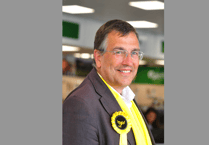I CAN hear some people saying ‘how terrible, junior doctors going on strike’, with the seniors to follow later, writes retired consultant Doctor David Halpin.
But many others, the railway workers, nurses and the many others at the coal faces, understand why young people doing vital jobs in what is left of OUR NHS are joining picket lines this week in desperation.
They will all say in unison that pay is a critical issue but conditions are central too. They will add that they can all see the services being torn apart, and the people they serve losing out badly.
As I have told you, and in quoting Ridley, Letwin and Redwood, that the NHS has been steadily dismantled over 40 years. I always look first to ‘intention’ when I see a process starting.
The intention was made absolutely plain and the evidence that OUR NHS has been largely destroyed is all about.
Each reader will have experience of delays when help in illness or emergency is needed, and often there will be wrong diagnosis or unnecessary delay in investigation, diagnosis and the start of any treatment.
For instance, I have written often in this column, with others, of the deliberate closure of community hospital beds.
It was known that this would add pressure on the district general hospitals. That word ‘pressure’ is used constantly by ministers and hospital managers, and it is mostly the result of deliberate action by those with the levers of power.
Unlike my own medical education which was funded by a County Major Award, and also by the NHS, the doctors qualifying for decades past have accumulated large debts or been helped by their families with university fees. An hourly rate of £14 per hour (?after deduction) will not allow a nibble at the debt.
But what is it like to be a junior doctor in the average DGH?
He or she sees the ambulances stacked up by the A&E. The bleep goes - ‘can the laparotomy done yesterday go to Newton Abbot Hospital where for once a bed is available immediately. There is a young male with peritonitis in A&E doctor.’
Then there is the operating list to arrange and write, all emergencies bar a few planned in advance. If the young doctor is a house physician the ward round is due. Almost all the patients are seriously ill – some dying, some waiting for urgent investigation.
The seniors will need to be brought up to the minute with the blood, X ray and other investigations. No time to stand in a queue in the refectory for a quiet meal – so perhaps a sandwich from a machine.
The European Working Time Directive is still in operation (I believe) in spite of Brexit. This shift system means that when on duty in the night hours, and when often sickness sharpens, the young doctor will be the first line of defence for many dozens of patients in this intentionally created pressure cooker.
All manner of things will press upon this doctor from prescription queries, drips stopping, to responding urgently when there is sudden and unexplained pain in a surgical patient post-operation.
The doctor will know that the chaos and pain he sees is wrong, and the edifice born of great hope and the best of intentions is crashing down.
Like the nurse who has no time to bed bath the very frail old lady, nor hold her hand for a while as she descends, nor comb her grey hair.
The doctor knows what is needed - thought, calm, skill - and a place for the new patient to rest while a careful history and examination takes place.
For a long time I used to say this at Torbay - ‘it’s all process and little thought’.
But this was not so at the Princess Elizabeth Hospital, Exeter, where I mostly trained and served as a consultant. Being excellent in every way, it had to be bulldozed in 1996 with its 120 beds including a children’s ward, so that the best care in orthopaedic surgery was made less accessible to the many needing its skills.
In being as one with my erstwhile younger colleagues, I think of Rose Polge. This petite and very caring young doctor, with medicine in her family, was in one of the pressure cookers and feeling that she was not up to the tasks demanded of her.
In this case it was Torbay Hospital, so it was Meadfoot Beach she chose. On a cold February night in 2016 she swam away into oblivion, to be found with Lyme Bay currents on Portland in April. Rose is one of many doctors whose spirit has been drowned because they cannot see a way up and away.
I recall being the seconder in a debate at Shaftesbury Grammar School – about 1955. I quoted John Dunne, 17C bishop and poet.
‘No man is an island, Entire of itself, Every man is a piece of the continent, A part of the main’
We are all here on this beautiful planet together, and we must pull together. We have just returned from Trago Mills where Sue bought a good walking aid.
At least a third of the visitors were overweight and unfit. The population at large must care for their health, and for those who might be needed to care for them. Finally, I ask that our local MPs give their honest view on how the Health Minister Barclay should respond to these doctors in OUR NHS.
They will need to justify the £400 billion spent around covid and how that has affected inflation and added to UK bankruptcy.




